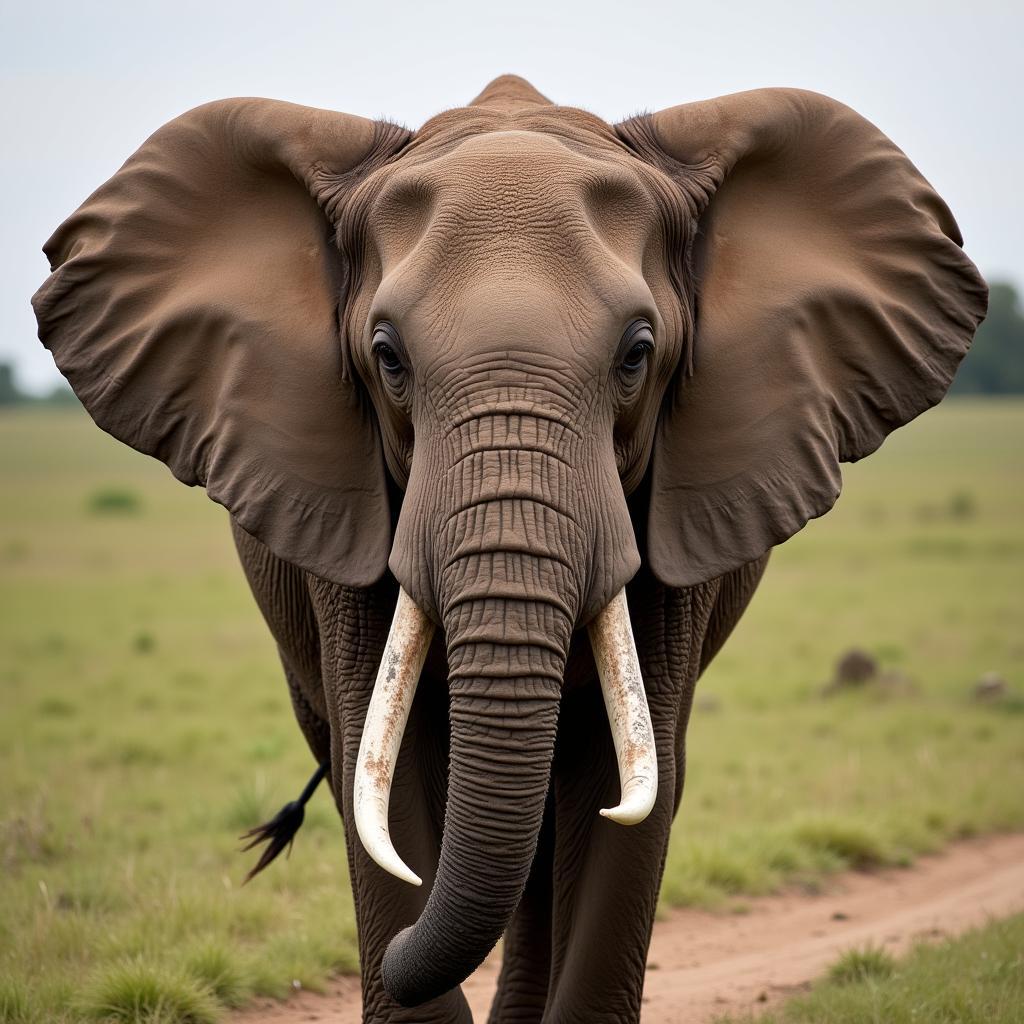The Remarkable World of African Bush Elephant Senses
The African bush elephant, the largest land mammal on Earth, navigates its world through a suite of highly developed senses. These senses, honed over millennia of evolution, are critical for their survival in the diverse and challenging environments of Africa. Understanding how these gentle giants experience the world around them provides a deeper appreciation for their intelligence, social complexity, and the importance of their conservation.
A Symphony of Sound: The Power of Elephant Hearing
African bush elephants possess an exceptional sense of hearing, far surpassing that of humans. Their large, mobile ears are not just for show; they act as acoustic amplifiers, capturing sound waves and funneling them to their inner ears. This allows them to detect sounds across a wide range of frequencies, from the low rumbles of distant storms to the high-pitched calls of other elephants miles away.
Infrasonic Communication: Speaking in Whispers
What makes elephant hearing even more fascinating is their ability to communicate infrasonically. These low-frequency sounds, below the range of human hearing, can travel for miles across the savanna. Elephants use these infrasonic rumbles for a variety of purposes, including:
- Long-distance communication: Elephants can keep in touch with family groups miles apart, sharing information about food and water sources.
- Mating calls: Males use powerful infrasonic calls to attract mates and signal their presence to rivals.
- Detecting danger: Elephants can pick up on the low rumbles of earthquakes or approaching storms, giving them valuable time to seek shelter.
 African bush elephant with ears spread wide
African bush elephant with ears spread wide
A World of Scents: The Importance of Smell
While their hearing might be their most remarkable sense, African bush elephants also have an incredibly keen sense of smell. Their long trunks, with their flexible tips and numerous olfactory receptors, allow them to detect even the faintest of odors. This sense of smell plays a crucial role in:
- Finding food and water: Elephants can detect water sources from miles away, and their sense of smell helps them locate ripe fruits, succulent leaves, and other essential food sources.
- Recognizing individuals: Each elephant has a unique scent, similar to a fingerprint. This allows them to identify family members, potential mates, and even rivals.
- Detecting danger: Elephants can smell predators from a distance, giving them a crucial head start in dangerous situations.
Touch, Taste, and Beyond: A Multi-Sensory World
While hearing and smell are paramount, African bush elephants rely on a full complement of senses to thrive:
- Touch: Their sensitive trunks and feet are covered in nerve endings, allowing them to manipulate objects with great dexterity and detect vibrations in the ground.
- Taste: Elephants have a well-developed sense of taste and are known to be quite picky eaters, favoring certain types of vegetation.
- Vision: While their eyesight is not their strongest sense, elephants can still see relatively well, especially in low light conditions. Their eyes are adapted to detect movement, which is essential for spotting predators and other threats.
“To truly understand elephants, you have to experience the world through their senses,” says renowned elephant researcher Dr. Joyce Poole. “Their ability to hear the whispers of the savanna, smell water from miles away, and feel the vibrations of a distant herd is a testament to their incredible sensory adaptations.”
The Future of Elephant Senses: Protecting a Legacy
As human encroachment on elephant habitats continues, it is vital to protect not only these animals but also the sensory landscapes they depend on. Noise pollution from traffic and industry can interfere with their communication, while habitat fragmentation can limit their access to essential resources.
By understanding the vital role of African Bush Elephant Senses, we can work towards conservation strategies that ensure these magnificent creatures continue to thrive in a world that is increasingly challenging for them to navigate.
FAQ
Q: How far away can an elephant hear?
A: Elephants can hear sounds from up to several miles away, especially low-frequency infrasonic calls.
Q: Do elephants have good eyesight?
A: While not their strongest sense, elephants have decent vision, adapted for detecting movement and functioning well in low light.
Q: How does an elephant’s trunk help it smell?
A: The elephant’s trunk is lined with numerous olfactory receptors, and its flexible tip allows it to sample scents from both the ground and the air.
For further insights into the fascinating world of African wildlife, explore more on our website:
- Discover the thrill of African horse safaris Krugersdorp.
- Delve into the diverse ecosystems of African forest wild animals.
- Uncover the unique adaptations of African animal mamatusas.
- Learn about the social structures of African herd animals.
Need help planning your African adventure? Contact us at +255768904061, email kaka.mag@gmail.com, or visit us in Mbarali DC Mawindi, Kangaga, Tanzania. Our dedicated team is available 24/7 to assist you.



